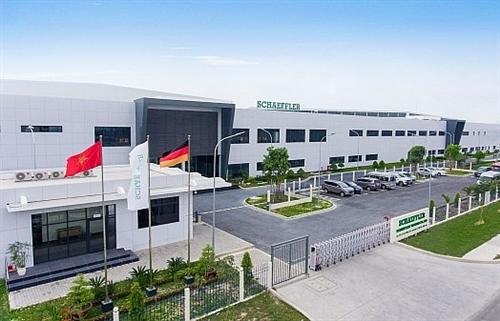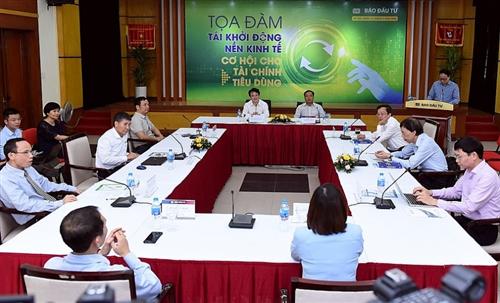New decree clears up points of law on economic concentration
New decree clears up points of law on economic concentration
The method of determination of the relevant market and market share prescribed in Decree 35 is similar to the superseded decree. In particular, the relevant market shall be determined based on the relevant product market and relevant geographical market; and the market share of an enterprise shall be determined by calculating turnover from sales, turnover of inward purchases, or market share of a group of affiliated enterprises.

Phuong Huynh - is senior associate at ACSV Legal
|
However, Decree 35 now provides for more specific figures to be used in the determination of relevant market, for example, for determination of goods or services deemed to be interchangeable in terms of their price or for determination of ability to switch supply.
The Law on Competition supplements the methods of determination of market share based on the quantity of units of goods or services sold or purchased. Based on that, Decree 35 provides guidance on such methods.
It is important to note that Decree 35 no longer provides separate principles for the determination of turnovers of insurance enterprises and credit institutions.
Pursuant to the law, one of the forms of economic concentration is acquisition of an enterprise, which is defined as a direct or indirect purchase by one enterprise of the whole or part of the capital contribution or assets of another enterprise sufficient to control or govern the acquired enterprise or any of its trades or business lines. For the purposes of determining the acquisition of an enterprise as one of the forms of economic concentration, Decree 35 defines “controlling or governing of a business line of an enterprise” as the acquiring enterprise:
- Gaining ownership of more than 50 per cent of the charter capital or the total voting shares of the acquired enterprise;
- Gaining ownership of or the right to use more than 50 per cent of the assets of the acquired enterprise in one or more of its business lines; or
- Having one of the following rights: to directly or indirectly decide the appointment, dismissal, or removal of a majority or all of the members of the board of management, chairman of the members’ council, director, or general director of the acquired enterprise; to decide the amendment or supplementation of the charter of the acquired enterprise; or to decide important matters regarding the business operations of the acquired enterprise, including the selection of the form of business organisation, business fields, business lines, locations, and business model, in addition to modifying the scope of business and business lines, selection of forms and methods of mobilising, allocating, and utilising business capital of the acquired enterprise.
The Law on Competition stipulates the criteria for determination of the thresholds where a notification on economic concentration is required. Decree 35 now provides the specific thresholds for this. It also stipulates separate thresholds for credit institutions, insurance companies, and securities companies.
In brief, when carrying out a transaction of economic concentration such as a merger, consolidation, acquisition, or a joint venture, enterprises other than credit institutions, insurance companies, and securities companies participating in such transactions shall be subject to the economic concentration notification requirement in three cases.
In case in the financial year preceding the economic concentration for either one of the enterprises participating in the transaction or the group of affiliated enterprises of which such participating enterprise is a member, the total assets or the total sales turnover or inward purchase turnover in Vietnam reaches at least VND3 trillion ($130.4 million), a notification needs to be lodged. It is important to take all the requirements mentioned in sections 2.2-2.4 into consideration when setting the timeline between signing and closing in a transaction. The timeline for a preliminary appraisal is 30 days. This can be followed by 90 days for an official review which can be extended by an additional 60 days.
Given the notification, assessment, and appraisal procedures required, as mentioned before, it is expected that more requests for a mergers and acquisitions approval will be submitted.
The Law on Competition outlines which types of anti-competitive agreements are always considered illegal and are therefore prohibited.
These include horizontal anti-competitive agreements which effectively result in price fixing, customer allocation, exclusion of market participation, market entry prevention, output restriction, or bid rigging. Additionally, vertical anti-competitive agreements on bid rigging, exclusion of market participation, and market entry prevention are also illegal. Other horizontal or vertical agreements are also banned if they cause or could potentially cause significant anti-competitive impact on the market. The law also stipulates factors to determine whether an agreement causes a significant anti-competitive impact in the market, including changes or trends in market share, barriers to entry or expansion, restrictions or obstructions across various areas, and more.
The Law on Competition no longer stipulates a combined market share threshold for the determination of prohibited anti-competition agreement, which was 30 per cent under the 2004 law. However, Decree 35 amends and supplements the threshold. Accordingly, and notwithstanding the factors mentioned in Section 3.1, two types of anti-competitive agreements shall be deemed as not causing or potentially causing a significant anti-competitive impact.
These are horizontal agreements between enterprises of which the combined market share is less than 5 per cent or vertical agreements between enterprises where each enterprise has a market share of less than 15 per cent.
The law stipulates the thresholds to determine whether an enterprise or a group of enterprises has a dominant market position or not. In addition, the law also provides for another basis to determine dominant market position when such thresholds are not met, which is termed as “significant market power of an enterprise”. Decree 35 determines the significant market power of an enterprise, by the following criteria:
- the correlation of the market share of enterprises in the relevant market;
- the financial strength and scale of the enterprise or group of enterprises, based on various factors;
- the barriers on other enterprises from market entry or expansion;
- the capability of accessing and controlling the distribution or consumption market;
- the advantages of technology and technical infrastructure of the enterprise or group of enterprises;
- the ownership and right to hold and access infrastructure;
- the ownership and right to use objects of intellectual property rights;
- ability to switch to sources of supply and demand of other relevant goods or services; and
- special factors in the industry or sector in which the enterprise or group of enterprises is currently conducting business.


























